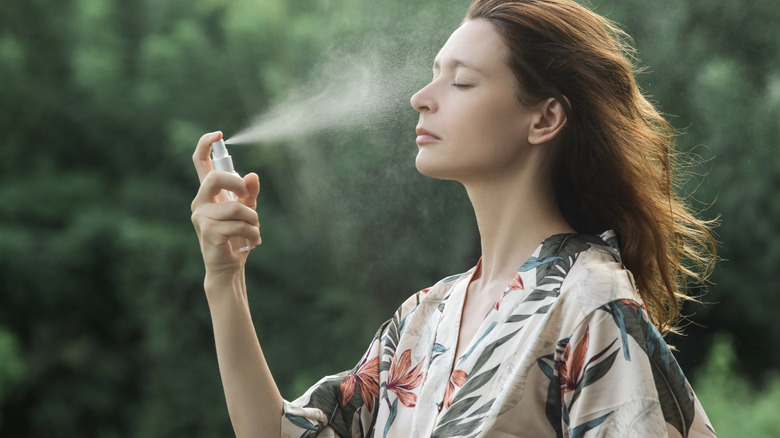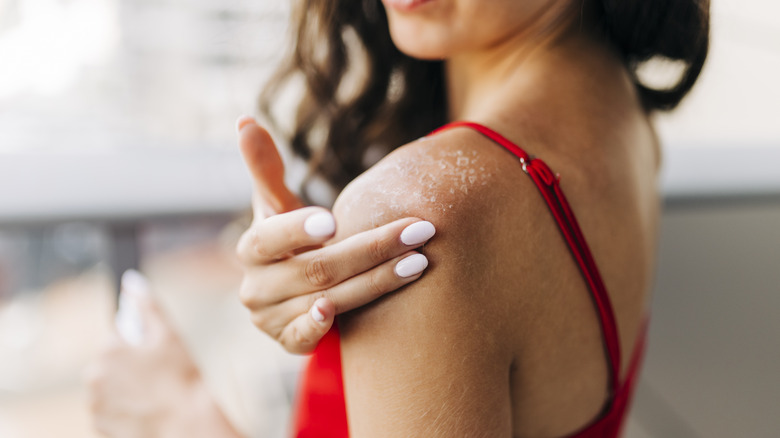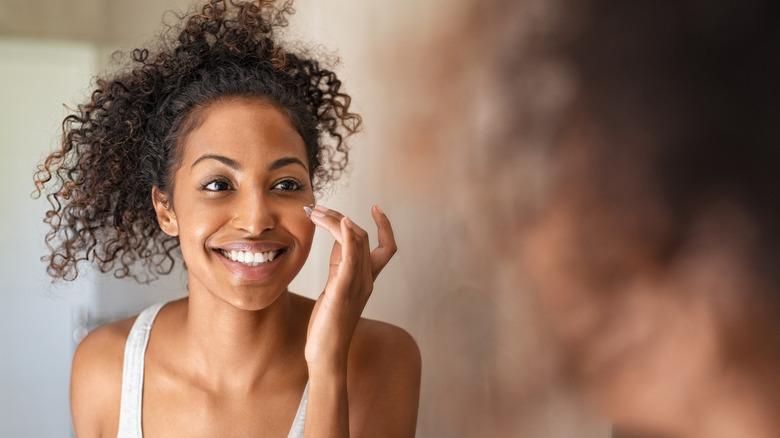What Is Hypochlorous Acid? Meet The New Skincare Favorite That's Ideal For Everyone
Guess what these products have in common: an "aggressive" cleaner suitable for offices, hospitals, and schools, an eyelid spray for irritated eyelids, an antimicrobial wound therapy product, and a delicate mist that reduces facial redness. They all have the exact same active ingredient — though the face mist is in a much cuter bottle with more welcoming-looking fonts.
Hypochlorous acid (HPCl) is in all of them. HPCl is a weak, non-scary acid that Nature.com reminds us we and all our mammal brothers and sisters produce naturally. When you get a scratch or wound, your white blood cells race over and release chemicals, including HPCl, which pounces on the pathogen invader, that's bacteria or a virus, disintegrating it.
To create a sellable product, scientists studied and reproduced it as a saltwater solution that's been electrified. The big reveal: HPCl kills bacteria, mycobacteria, spores, fungi, and viruses in 15 seconds, and it got famous as a murderously effective disinfectant against the coronavirus. Over 100 years ago, doctors used it to disinfect wounds during WWI. Now that manufacturers have diluted and made the product more stable, it's made its way into skincare.
How is HPCl used in skincare?
Despite the fact that it can be 100 times more powerful than bleach against bacteria, one of the most compelling benefits of HPCl is its safety. Our own immune systems make it, so it's harmless and essentially risk-free. HPCl is added in much lower concentrations for facial care than in an industrial cleaner, so don't ever swap them. You'll only want to use real beauty products on your face.
As a skincare product, HPCl is anti-inflammatory. It reduces redness from rosacea, fights acne by killing the bacteria that cause it, and soothes conditions like eczema and psoriasis.
Sprays are a popular delivery system, but it's also showing up in creams, serums, and facial cleansers. It's safe and non-toxic even for sensitive skin, but if your face is extra sensitive, you might want to steer clear of products containing fragrance. Speaking to the Cleveland Clinic, dermatologist Shilpi Khetarpal, MD says HPCl products are gentle enough to incorporate into a daily skin regimen.
What types of products are available?
If you're seeking to power up your daily skincare routine but are not on the hunt for a post-surgical mouth rinse, you're in the right place.
A variety of products have evolved. There are facial sprays you can use on your face, scalp, and body to reduce the redness and itching from sunburn. An FDA-cleared antimicrobial facial cleanser gets rid of germs safely from around the mouth, eyes, and nose. Cleansers that aren't drying for teenagers with acne effectively pull bacteria away. An antimicrobial spray specifically for eczema promotes healing.In the serum department, there are multi-use gels that soften fine lines, smooth out face, neck, and chest areas, and add hydration to red skin. (Afterall, serum foundations are a makeup minimalist's do-it-all dream.) There's a facial repair gel to calm rash and hive breakouts.
As for application techniques, if you're using a spray, avoid the eyes. After cleansing your face, using a product with HPCl could be your next step, before you set your face with a moisturizer.


